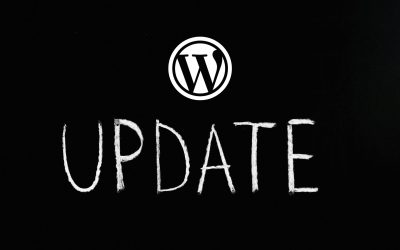As your business expands, so too do the demands on your website. Increasing traffic, larger amounts of data, and the need for more sophisticated security measures all mean that what worked for your website initially may not be sufficient as your business grows. Upgrading your hosting plan is a critical step to ensure that your website can handle increased loads and provide a seamless experience for users. Here are essential tips and strategies to help you effectively scale your website by choosing the right hosting solutions.
1. Evaluate Your Current Hosting Situation
Before making any changes, it’s important to assess the current status of your website. Analyze your site’s traffic over time, paying attention to peak periods and considering whether you expect further growth in the near future. Look at your current hosting plan and evaluate its limitations. Is your site experiencing slow loading times, downtime, or bandwidth issues? If these problems are occurring frequently, it might be time to consider an upgrade.
2. Understand Different Hosting Options
Knowing the different types of hosting options available will help you make an informed decision about what’s best for your growing site. Here’s a brief overview:
Shared Hosting: Best for small websites with low to moderate traffic. As traffic grows, shared resources can become a limitation.
VPS (Virtual Private Server) Hosting: Offers more control and dedicated resources than shared hosting without the cost of a full dedicated server. Suitable for medium-sized businesses.
Dedicated Hosting: Provides maximum control, security, and resources. It is ideal for large businesses with high traffic volumes.
Cloud Hosting: Offers flexibility and scalability by allowing you to easily increase resources during traffic spikes. This is great for businesses with fluctuating traffic.
3. Plan for Future Growth
When considering an upgrade, don’t just think about your immediate needs. Look at long-term projections for your business and anticipate the resources you might need in the future. Scalability should be a key factor in your decision. Cloud hosting, for example, can be a great choice because it allows you to scale resources up or down based on real-time demands without needing to switch providers or plans.
4. Assess Performance and Security Features
As traffic increases, your website will need to handle more concurrent users, higher data loads, and potentially more security threats. When upgrading your hosting plan, consider:
Performance: Look for plans that offer better CPU performance, more RAM, and increased disk space. Additionally, technologies like caching and Content Delivery Networks (CDN) can enhance your site’s load times.
Security: Ensure the new plan includes robust security features such as regular backups, malware scanning, and a secure sockets layer (SSL) certificate if not already obtained.
5. Check Service Quality and Support
The quality of customer support can make a significant difference, especially when dealing with complex websites and higher traffic. Ensure the hosting provider offers 24/7 customer support with a proven track record of reliability and customer satisfaction. Read reviews and testimonials to gauge other customers’ experiences.
6. Consider the Financial Implications
Upgrading your hosting plan is an investment in your business’s online infrastructure. Compare the costs of different hosting plans and providers, but also consider the potential cost of not upgrading—such as lost sales during downtime or slow loading times. Often, the long-term benefits of a more robust hosting solution will outweigh the initial costs.
7. Make the Transition Smoothly
Once you decide to upgrade, plan the transition carefully to minimize downtime. This may involve setting up the new hosting environment, migrating your website files and databases, and updating DNS records. Many hosting providers offer migration services, so check if this is available and whether it might help make the process smoother.
Conclusion
Scaling your website by upgrading your hosting plan is a crucial step for growing businesses. By assessing your current and future needs, understanding the options available, and choosing a plan that offers the right balance of performance, security, and cost, you can ensure that your website continues to support your business effectively as it grows. Remember, the goal is to provide an optimal experience for your users while accommodating your business’s expanding needs.






